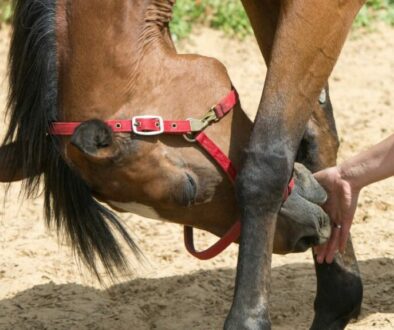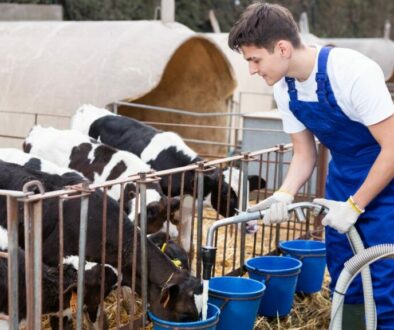How To Become A Wildlife Biologist?
Are you passionate about wildlife and conservation? Do you want to make a career out of it? If yes, then becoming a wildlife biologist could be the perfect choice for you. In this article, we will guide you through the steps and skills needed to become a wildlife biologist. We will also discuss what a wildlife biologist does and the benefits of working in this field.
Steps To Becoming A Wildlife Biologist
Becoming a wildlife biologist is an exciting and rewarding career path for those who love animals and want to make a difference in their conservation. If you’re interested in pursuing this field, here are some steps you can take to get started:
- Earn a Bachelor’s Degree
The first step in becoming a wildlife biologist is to earn a bachelor’s degree in biology, wildlife biology, zoology, or a related field. While pursuing your degree, take courses in ecology, genetics, and animal behavior to gain a solid foundation in the field. You can also choose to pursue a degree in environmental science, ecology, or conservation biology. Make sure to choose a program with a focus on wildlife biology and conservation.
- Pursue a Master’s or Doctoral Degree
Once you have earned a bachelor’s degree, you can pursue a master’s or a doctoral degree in wildlife biology. This will help you gain more knowledge and expertise in your field and increase your employment opportunities. During your graduate studies, you will have the opportunity to conduct research on a specific area of wildlife biology that interests you, such as animal behavior or conservation genetics.
- Gain Practical Experience
To gain practical experience, consider internships or volunteering opportunities with wildlife agencies, national parks, or conservation organizations. This will help you gain hands-on experience and build your network within the wildlife biology community. You may also have the opportunity to work with endangered species or conduct research on conservation efforts.
- Obtain a Wildlife Biologist License
You may also need to obtain a wildlife biologist license, depending on the state you want to work in. Check with the state wildlife agency for specific requirements. In addition to a license, you may need to pass an exam to become certified by a professional organization, such as the Wildlife Society.
Becoming a wildlife biologist requires dedication, hard work, and a passion for conservation. With the right education and experience, you can make a difference in protecting our planet’s wildlife for future generations.
Skills Needed to Become a Wildlife Biologist
Expanding on the skills needed for becoming a wildlife biologist, it is important to have a strong background in biology, ecology, and environmental science. Understanding the natural world and the interactions between different species and their environments is critical for conducting research and making informed decisions about wildlife management.
In addition to technical skills, successful wildlife biologists also possess a deep passion for nature and a commitment to conservation. This requires a strong sense of ethics and a willingness to advocate for the well-being of wildlife populations and their habitats.
Fieldwork is a significant component of a wildlife biologist’s job, and as such, physical fitness and outdoor skills are essential. You may spend long hours hiking through rugged terrain, camping in remote locations, and enduring inclement weather conditions. Therefore, having survival skills, such as building a fire, setting up a shelter, and navigating using a map and compass, is crucial.
Wildlife biologists also need to be able to work independently, taking initiative to design and implement research projects, collect and analyze data, and report findings. They must be able to adapt to changing circumstances and be comfortable making decisions in uncertain situations.
Finally, a willingness to continue learning and staying up-to-date on the latest research and technological advancements is a key attribute for a successful wildlife biologist. This requires a commitment to ongoing education and professional development, such as attending conferences, workshops, and seminars, and staying informed about the latest publications in the field.
What Is A Wildlife Biologist?
A wildlife biologist is a professional who studies the behavior, ecology, and conservation of wild animals and their habitats. They are passionate about understanding the complex relationships between wildlife and their environment, and work to develop management plans that protect and conserve wildlife populations.
Wildlife biologists play a critical role in the protection of endangered species, as well as in the development of policies and strategies that promote sustainable use of natural resources. They work in a variety of settings, including government agencies, research institutions, non-profit organizations, and private companies.
One of the primary responsibilities of a wildlife biologist is to conduct surveys and collect data on wildlife populations. This may involve tracking animals in the field, setting up camera traps, or using other methods to gather information on their behavior, habitat use, and population size.
Once data has been collected, wildlife biologists analyze it to determine the health and status of wildlife populations. They use this information to develop management plans that address threats to wildlife, such as habitat loss, pollution, and climate change.
Another important aspect of a wildlife biologist’s job is to work with other professionals to develop policies and strategies that promote sustainable use of natural resources. This may involve collaborating with government agencies to develop regulations that protect wildlife, or working with non-profit organizations to develop conservation programs.
Overall, the work of a wildlife biologist is critical to the conservation of wildlife and the protection of natural resources. Their passion for understanding and protecting the natural world is inspiring, and their work is essential to ensuring a sustainable future for all living things.
The Benefits Of Working As A Wildlife Biologist
Working as a wildlife biologist can be a fulfilling and rewarding career choice. The work allows you to engage with nature, observe and study wildlife, and make a difference in protecting and conserving our planet’s biodiversity.
Wildlife biologists also have the opportunity to work in a variety of settings, from remote wilderness areas to urban environments. In remote wilderness areas, wildlife biologists may work in national parks, forests, or wildlife reserves. These areas offer a unique opportunity to observe and study wildlife in their natural habitats. In urban environments, wildlife biologists may work for city or state governments, monitoring and managing the wildlife populations that live in and around cities.
One of the most exciting aspects of working as a wildlife biologist is the chance to work with a wide variety of species. Wildlife biologists may study everything from large mammals like bears and wolves, to birds, fish, and even insects. This diversity of species means that no two days on the job are ever the same.
Another benefit of working as a wildlife biologist is the opportunity to travel. Wildlife biologists may travel to remote locations to conduct research or work with local communities to develop conservation programs. This can be an exciting and rewarding aspect of the job, as it allows you to experience new cultures and environments.
The job outlook for wildlife biologists is positive, with job growth predicted to be faster than average over the next decade. This is due in part to increased public awareness of the importance of conservation and the need to protect our planet’s biodiversity.
The salary for wildlife biologists varies depending on the level of education, experience, and type of employer. However, it is generally a well-paying profession with good benefits and job security. In addition, many wildlife biologists find their work to be personally fulfilling, as they are able to make a positive impact on the environment and the world around them.
If you are passionate about wildlife and conservation, becoming a wildlife biologist could be the perfect career choice for you. By following the right steps, gaining necessary skills, and getting practical experience, you can build a successful career in this field. As a wildlife biologist, you will have the opportunity to protect and conserve some of our planet’s most precious natural resources for generations to come.




